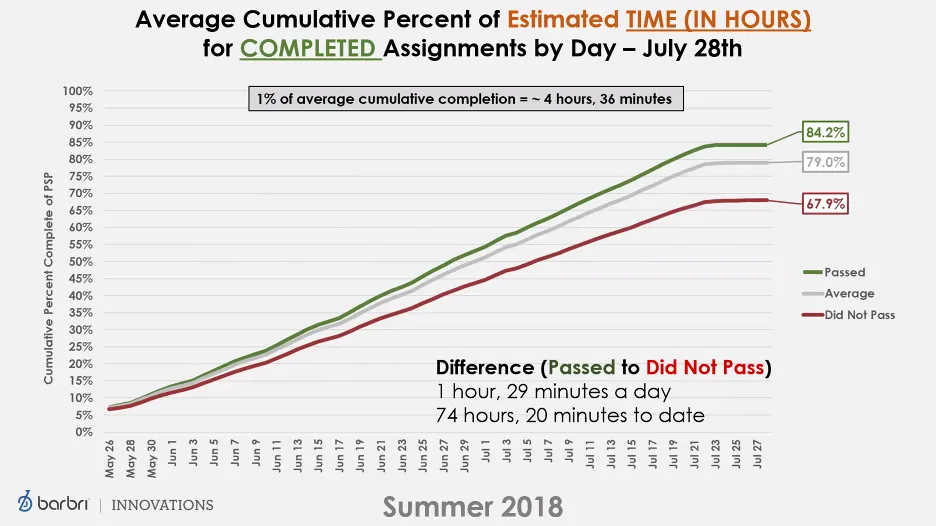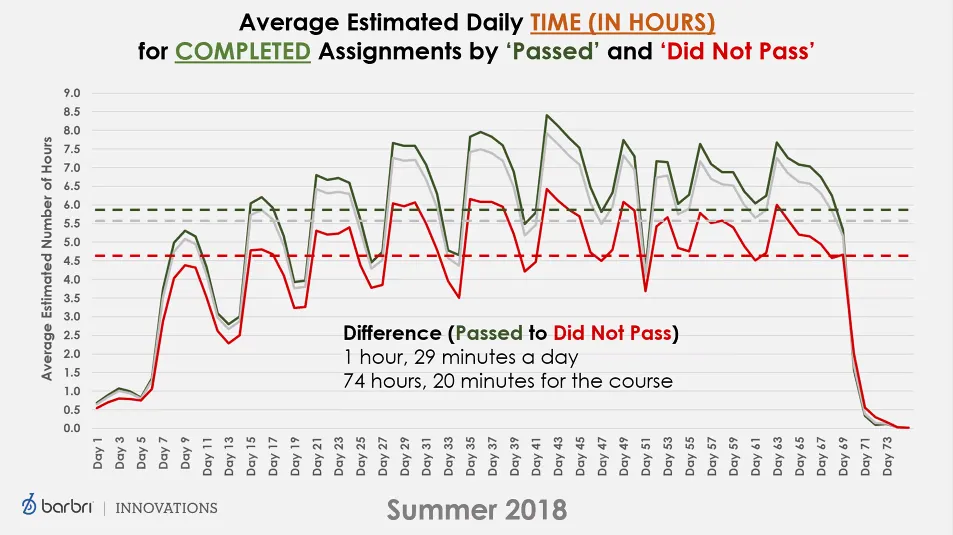Bar Study Advice
What Are You Supposed To Be Doing, Anyway
Bar study may be a bit mysterious to most students, but at its core it is a fairly straightforward endeavor: internalize an extensive body of law! There are certainly nuances to doing this and no two students' needs are exactly alike, but all students need to make sure they understand the major categories of law tested and work diligently at committing rules to memory.
In addition, there is an important role for actively practicing with the material. The test demands a lot of time management and endurance and these skills are best cultivated through active practice. Your prep work will be further benefitted by cultivating test taking strategies and getting to know more about how the test is scored. As you approach your study, consider your own strengths and challenges and be aware of the different resources available to support you in this endeavor.
The use of a full, comprehensive bar review course is a necessity for managing this heavy lift. Please see the information in the tab below on "Commercial Bar Review" for help with this decision.
Don't be afraid of this process, but do take it seriously. This rite of passage still heavily dominates the legal field and most people who wish to practice law, will need to take a bar exam. The good news is that we have a lot of information on how to do this well! The test is hard but conquerable.
Bar Subjects
You can get started any time by familiarizing yourself with the bar exam subjects. A good place to start is with the NCBE website (ncbex.org) where you can find subject matter outlines for the MBE and the MEE.
Also, please stop by the Bar and Academic Success Office anytime, where we have some printed subject guides and other free resources to peruse.
Test Yourself
Beginning your study with a self-assessment is a great idea. Don't expect to be good at this right away, but learn how doing practice/timed bar exam questions feels. Start with the NCBE website on which you can find released practice questions in all three areas of the UBE.
Or, best yet, plan to sit for one of the FREE simulated bar exams that the law school offers each semester. Check our Announcements page here to see what is coming up.
Bar Review
Most students do not try to tackle this high-stakes test without the support of a comprehensive, commercial bar prep course.
Choosing one can be challenging and is a personal decision. Please see our page on Bar Review courses here.
Once you enter the world of bar prep courses, much of the guesswork about what to do is done for you. Make sure that you are comfortable with your choice of company. You can supplement your program with other materials such as outlines, guides, flashcards and more.
Please pop by the Bar and Academic Success Office to take a look at some sample materials in our Resource Center and ask questions about what is available to you!
Actively Engage
Many students are happy to give their bar prep over completely to their commercial bar review course. While this is probably fine, consider whether all of your test-taking needs (and your test-taking personality) are being taken into account by your bar review company.
As a rule of thumb, most bar takers should attend to several phases or steps in their practice. These include: plenty of time for learning black letter law; plenty of time for memorization; lots of practice Multiple Choice and Essay questions; a review of your performance on the practice questions you complete. In addition, you will do well to develop your own test-taking strategies for handling the timing and pacing of the test questions and having a plan for test day challenges and logistics. Finally, and most importantly, students taking standardized tests should manage their rest and confidence. This may be easier said than done! Please reach out for help if at any point in the process this feels overwhelming.
Your classmates and predecessors are one of your best resources. Here is a collection of advice from those on this journey a step or two ahead of you.
Successful July 2024 PA bar taker, Zachary Schimke shares his experience, advice and encouragement here.
What I Wish I Knew Before Taking the Bar Exam; successful Feb 2024 Bar takers Gavin Keogh. Presentation in April 2024. See slide deck here.
Anonymous 2023 Grad and Successful July 2023 Bar Taker shares their thoughts on bar prep.
What I Wish I Knew Before Taking the Bar Exam, Feb 2023 Arizona bar taker Eryn Ruechel. View a video of the presentation here:
Q & A With Cayley Balser, class of 2022, Arizona Bar Taker/Passer, July 2022.
How to Prepare for the Bar Exam? From an Arizona alum and 2020 California bar taker Jeff Su.
Creating a Bar Exam Study Schedule
Commercial Bar Review courses will usually manage your daily and weekly schedule, but you may need to customize this for any number of reasons.
Typically, students spend two to three months tackling bar prep. In a survey of recent Arizona Law alumni, over 80% agreed that they tackled bar prep as if it were a full time job.
Strive for balance between good healthy habits (like sleep, exercise, eating) and extensive studying. Aim for the sweet spot where you are studying diligently and intelligently but avoiding burn-out. Almost no one is benefitted from spending seven days a week 10 or 12 hours a day studying without a break. To produce your best, high-level analytical thinking you have to also attend to yourself as a person.
Resources for Creating a Schedule
Bar Exam Study FAQs
What to do if You Can't Avoid Working During Bar Study?
Almost everyone understands that the best way to study for the bar is to take time off and study full time. This is because studying for the bar is its own job. Still, working is unavoidable for many. So, if you must work, there are some things you can do to maximize your chances of success.
First, start studying earlier, this is easier if you are enrolled in a bar review course with on-demand versus live content.
Second, front-load studying that doesn’t require memorization. (start with the MPT) Note though, that if you start early, you may be susceptible to burnout.
Third, try get some time off just before the bar. It’s best to have at least a few weeks of dedicated study time.
Finally, consider getting a bar tutor. Bar tutors can help you identify your strengths and weaknesses to ensure the best study plan.
The Benefits of Starting Early
Every student can benefit from starting bar study early. Peace of mind comes from knowing you have sufficient time available to adequately prepare. If you think it feels like too much in April to spend a 1/2 day doing a practice test, imagine how you will feel mid-June when you still don't feel confident in your memorization after overcoming a strange summer flu. If you've struggled in law school, or simply worry about your ability to prepare in such a short time frame, or if you will need to to juggle multiple responsibilities during the bar exam (family, work, health), starting early is a necessity.
-
Start with the PT
The MPT is worth 20% of your score in UBE jurisdictions, and requires no memorization. Develop the skills early to free up bar-review time for memorization.
How Much Should I be Studying Each Day?
I have been following the COMMERCIAL COURSE recommendation each day, How do I know what else I should be doing? And how much other stuff should I be doing?
It's okay to follow what the Commercial Bar Course says, but I always recommend getting ahead in the beginning just in case something comes up (like sickness, tech issues, etc.) This way, if you need to miss a day or two, you can feel confident knowing you are ahead. Many, many students complete their bar course and do not supplement. Others use their "extra" time to do additional MBE questions, practice MEEs, use flashcards, etc. Only YOU know what works best for you (and you know well, given your excellent performance in law school so far). Don't stop doing what has worked in the past. Just be sure you do plenty of self-testing so that you have a realistic assessment of what you can recall versus what you are merely familiar with.
I always like to show students this chart I got from BARBRI--"The following graphs are from BARBRI's data from Summer 2018 graduates. The graphs demonstrate the difference in amount of work and hours completed by passers versus non-passers. The difference of studying 7 hours and 40 minutes a day versus 6 hours and 11 minutes a day translates to two full weeks of skipped bar prep."



